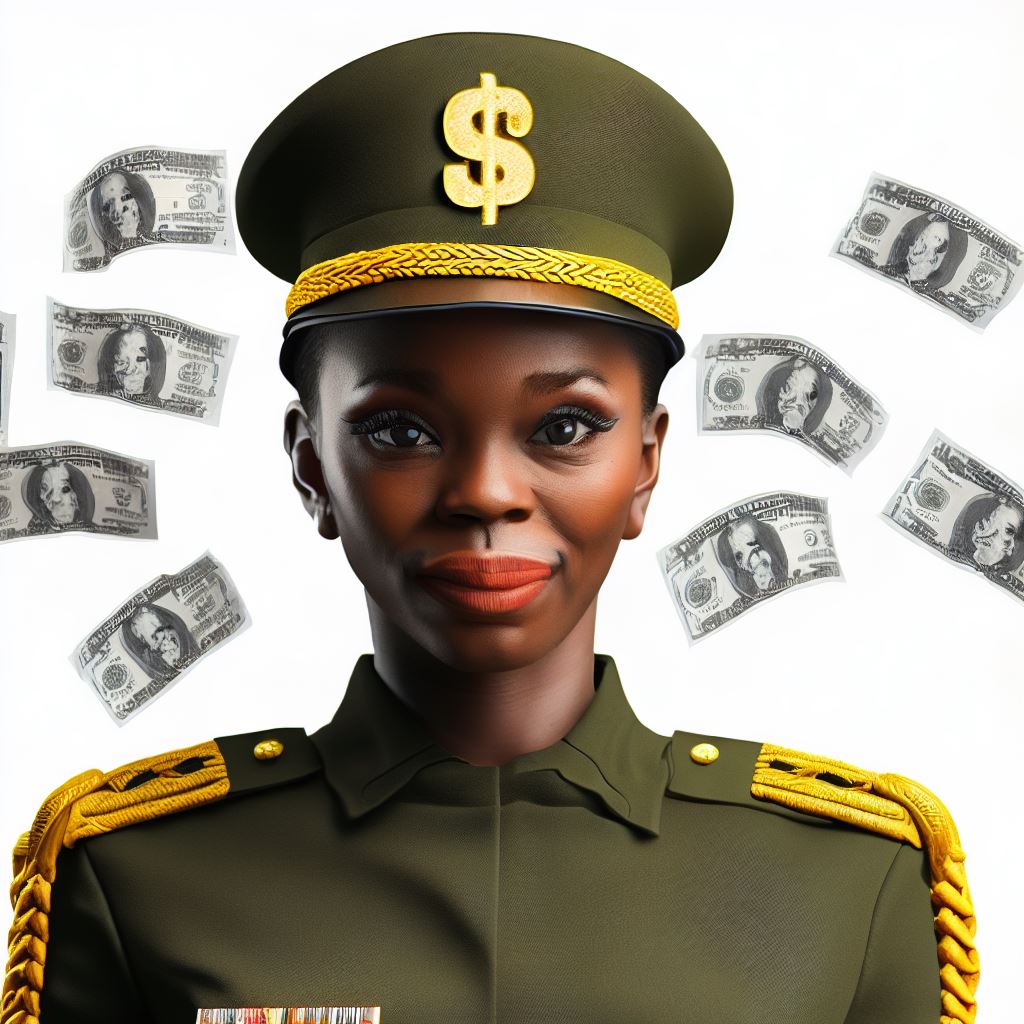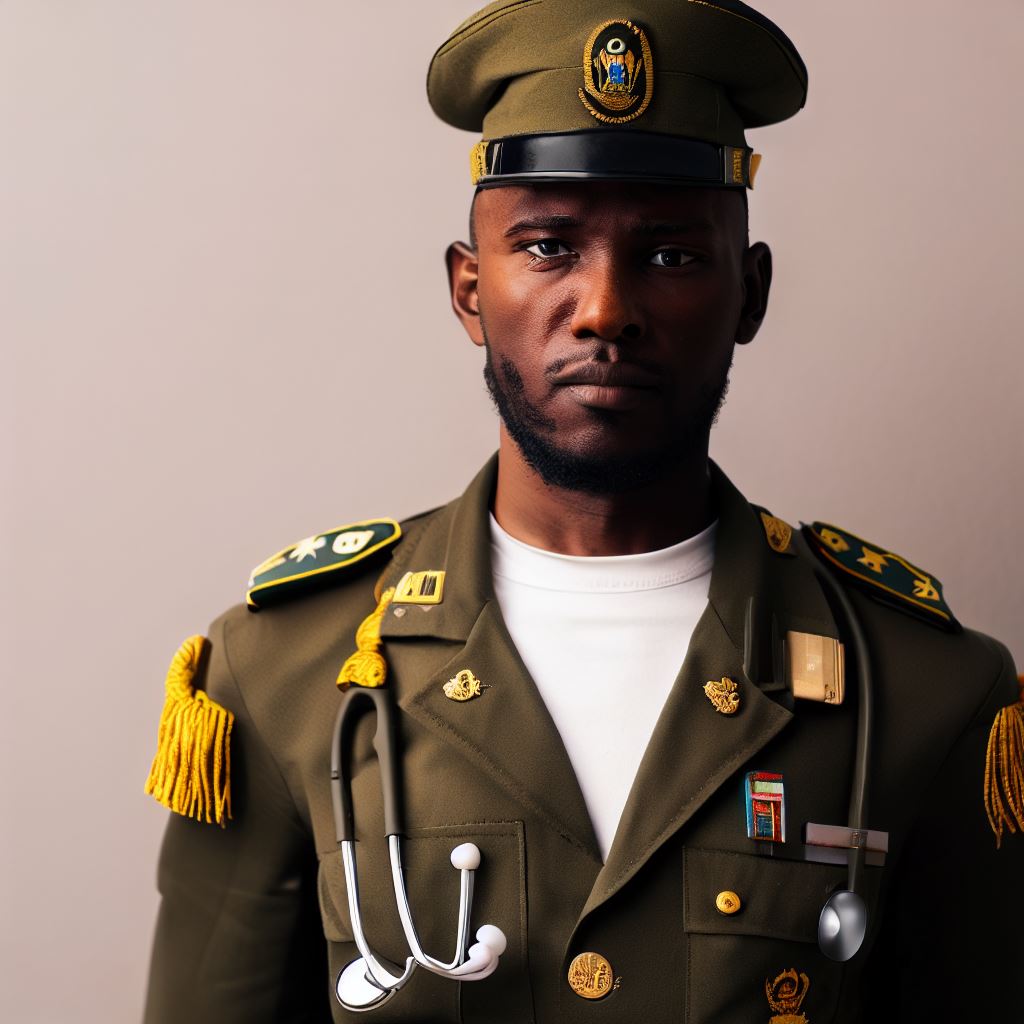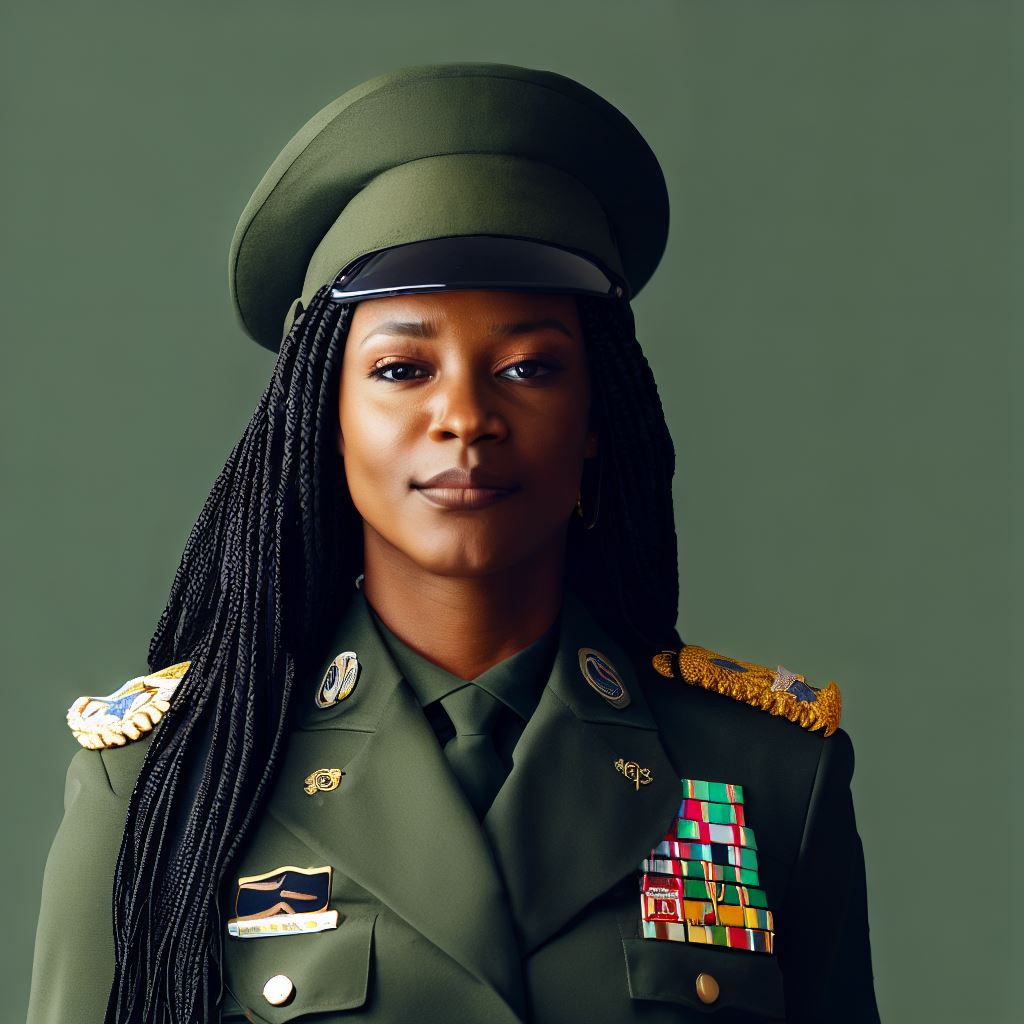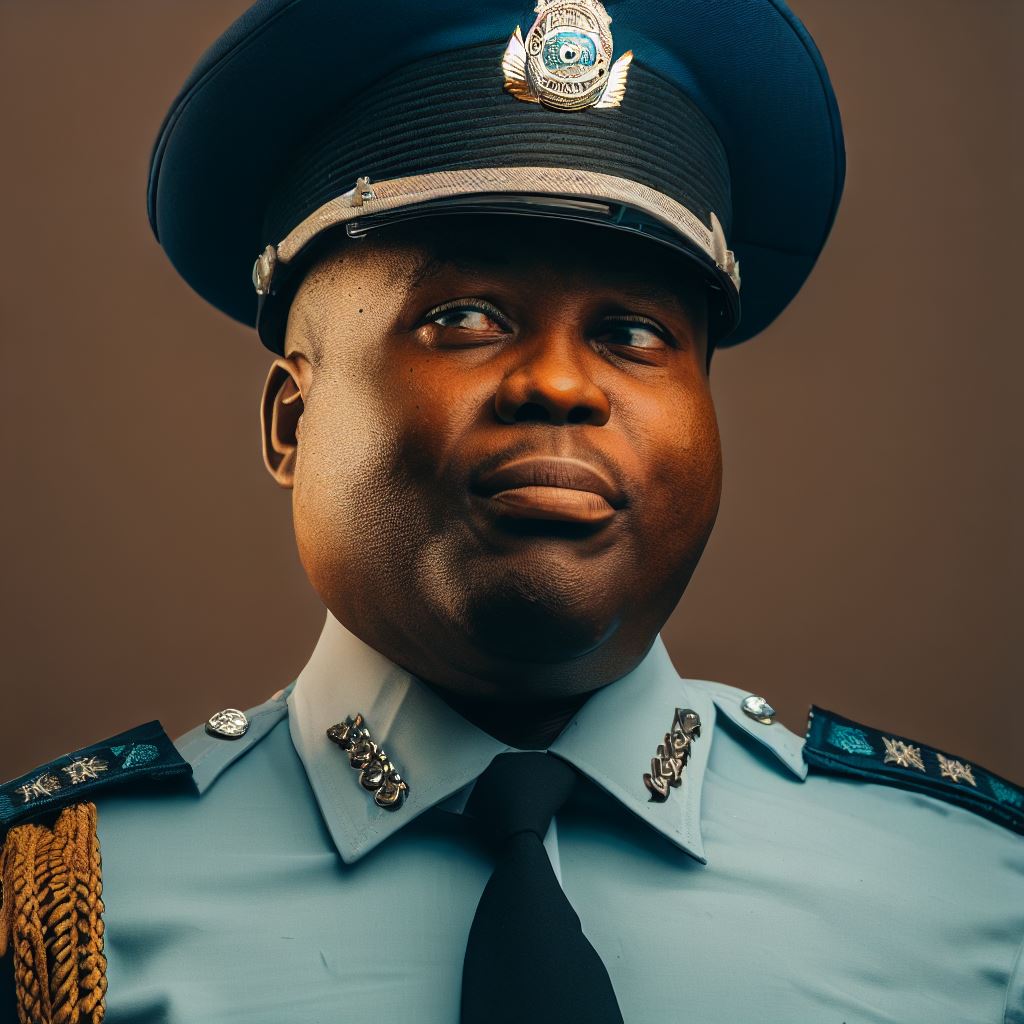Introduction
Nigerian military history is rich and diverse, evolving from pre-colonial resistance to present-day peacekeeping operations.
Great officers and leaders have played a crucial role in shaping the military and its effectiveness.
The Nigerian military has a long history, dating back to indigenous armies that defended various communities and kingdoms before colonization.
During the colonial era, Nigerians were recruited into the military by the British to serve in World War I and II.
After gaining independence in 1960, Nigeria established its own armed forces, consisting of the Nigerian Army, Navy, and Air Force.
Great officers and leaders have been instrumental in the development, organization, and effectiveness of the Nigerian military.
Their leadership skills, strategic thinking, and ability to inspire and motivate troops have been vital in ensuring the success of military operations.
These officers and leaders have also played a pivotal role in maintaining discipline, upholding the military’s core values, and fostering a strong sense of professionalism.
Additionally, they have been responsible for training and mentoring younger military personnel, ensuring the continuous growth and improvement of the armed forces.
The presence of great officers and leaders in the Nigerian military has not only bolstered its capabilities but also enhanced its reputation both nationally and internationally.
Their contributions in times of crisis, such as peacekeeping missions and internal security operations, have reflected positively on Nigeria as a responsible global player.
In essence, the importance of great officers and leaders in shaping the Nigerian military cannot be overstated.
Their leadership, expertise, and dedication have been instrumental in its growth, effectiveness, and reputation.
Pre-Colonial Era
A. Overview of the various ethnic groups in Nigeria
Nigeria is a country that is rich in diversity, with over 250 distinct ethnic groups. Each group has its own unique culture, language, and traditions.
Some of the major ethnic groups in Nigeria include the Hausa, Yoruba, Igbo, Fulani, and Ibibio.
These ethnic groups have been present in Nigeria for centuries and have played a significant role in shaping the country’s history, including its military history.
Each group has its own distinct militaristic traditions and leadership structures, which have greatly influenced Nigerian military history.
B. Militaristic traditions and leadership structures
The various ethnic groups in Nigeria have long-standing militaristic traditions that are deeply rooted in their cultures. These traditions emphasize the importance of bravery, honor, and discipline in warfare.
Leadership structures within these ethnic groups vary, but they often consist of a combination of political and military leaders.
These leaders are responsible for organizing and leading their people in times of war, as well as maintaining order and security during times of peace.
C. Notable warriors and military leaders from this period
Throughout the pre-colonial era, Nigeria was home to many notable warriors and military leaders who greatly impacted the country’s history.
These individuals were revered for their bravery, strategic thinking, and leadership skills.
One such notable warrior was Nana Asma’u, a princess and teacher of the Sokoto Caliphate in the early 19th century.
She was known for her skills in diplomacy, education, and military strategy, and played a crucial role in the expansion of the caliphate.
Another important military leader was Oba Ewuare the Great of the Benin Empire.
He ruled in the 15th century and was known for his ability to maintain a powerful military force, as well as his diplomatic skills in forging alliances with neighboring kingdoms.
The legendary Queen Amina of Zazzau is another notable figure from this period.
She was the first woman to become the ruler of Zazzau and was known for her military prowess and conquests.
Her leadership and strategic skills are still celebrated in Nigerian folklore to this day.
The pre-colonial era in Nigerian military history was characterized by a diverse range of ethnic groups, each with its own unique militaristic traditions and leadership structures.
Notable warriors and military leaders from this period, such as Nana Asma’u, Oba Ewuare the Great, and Queen Amina, left a lasting impact on Nigerian history through their bravery, leadership, and strategic thinking.
Understanding this era is crucial in comprehending the development of Nigeria’s military history and the influence of its ethnic diversity on its military strategies and leadership structures.
The stories of these great officers and leaders continue to inspire and remind us of the rich and diverse heritage of the Nigerian military.
Read: Physical Fitness for Nigerian Military Officers
Colonial Era
A. Arrival of European colonial powers and their impact on Nigerian military
- The arrival of European colonial powers in Nigeria had a significant impact on the country’s military.
- The colonial powers introduced new military strategies, technologies, and training methods to Nigeria.
- These changes helped modernize the Nigerian military and prepare it for future conflicts.
- The Europeans also brought with them the concept of a standing army, which replaced the traditional warrior societies.
- This shift in military organization allowed for centralized control and more effective military operations.
B. Formation of Nigerian regiments in the colonial armies
- Under colonial rule, Nigerian regiments were formed within the various colonial armies.
- These regiments consisted of Nigerian soldiers who served under the command of European officers.
- The regiments played a crucial role in maintaining law and order in the colonies.
- They were often deployed to quell rebellions and protect colonial interests.
- Some of the notable Nigerian regiments included the West African Frontier Force and the Royal West African Frontier Force.
C. Prominent Nigerian officers who served in the colonial military forces
- Several Nigerian officers distinguished themselves in the colonial military forces.
- One such officer was Captain Nnamdi Azikiwe, who later became Nigeria’s first President.
- Captain Azikiwe served in the Royal West African Frontier Force and played a vital role in Nigeria’s independence movement.
- Another prominent officer was General Yakubu Gowon, who served as Nigeria’s Head of State during the Biafra conflict.
- General Gowon was a highly respected military leader known for his diplomacy and commitment to national unity.
In fact, the colonial era played a significant role in shaping Nigeria’s military history.
The arrival of European powers brought about changes that modernized the Nigerian military, including the introduction of new strategies and technologies.
Nigerian regiments were formed within the colonial armies and played a crucial role in maintaining law and order.
Several Nigerian officers rose to prominence during this time, contributing to Nigeria’s independence struggle and national unity.
Overall, the colonial era laid the foundation for the Nigerian military as we know it today.
Read: Cadet Life in Nigeria: A Military Officer’s Start
Independence and the Nigerian Civil War
The Nigerian military played a significant role in the struggle for independence, as well as during the Nigerian Civil War.
This section explores the military’s involvement in both these crucial periods in Nigerian history.
A. Role of the Nigerian military in the struggle for independence
- The Nigerian military actively supported nationalist movements fighting against British colonial rule.
- Key military personnel, including Major Patrick Chukwuma Kaduna Nzeogwu, participated in the January 1966 coup.
- This coup aimed to eliminate corrupt political leaders who were hindering Nigeria’s path to independence.
- The military’s involvement in politics increased after the coup, leading to further instability and tensions.
B. Military coup d’états leading up to the Nigerian Civil War
- The July 1966 counter-coup, led by Northern military officers, resulted in the deaths of many Igbo military personnel.
- The ensuing retaliatory violence led to the escalation of ethnic and regional tensions in the country.
- These tensions eventually contributed to the secessionist movement in the Eastern Region and the outbreak of the Nigerian Civil War.
C. Notable military leaders during the civil war
- General Yakubu Gowon was the Head of State and Commander-in-Chief of the Federal Military Government during the war.
- Under Gowon’s leadership, the Nigerian military implemented the “Three Rs” policy: reconciliation, rehabilitation, and reconstruction.
- Colonel Chukwuemeka Odumegwu Ojukwu led the secessionist Republic of Biafra, which fought against the Nigerian government.
- Ojukwu’s charismatic leadership and determination to protect Igbo interests made him a prominent figure during the conflict.
In short, the Nigerian military played a multifaceted role in Nigeria’s struggle for independence and the subsequent civil war.
From supporting nationalist movements to engaging in political coups, the military shaped the country’s trajectory.
The tensions and violence caused by military interventions ultimately led to the secessionist movement, which brought about the Nigerian Civil War.
Notable military leaders like Yakubu Gowon and Chukwuemeka Ojukwu emerged during this conflict, each representing opposing sides and ideologies.
Read: Nigerian Military Officers in Peacekeeping Missions
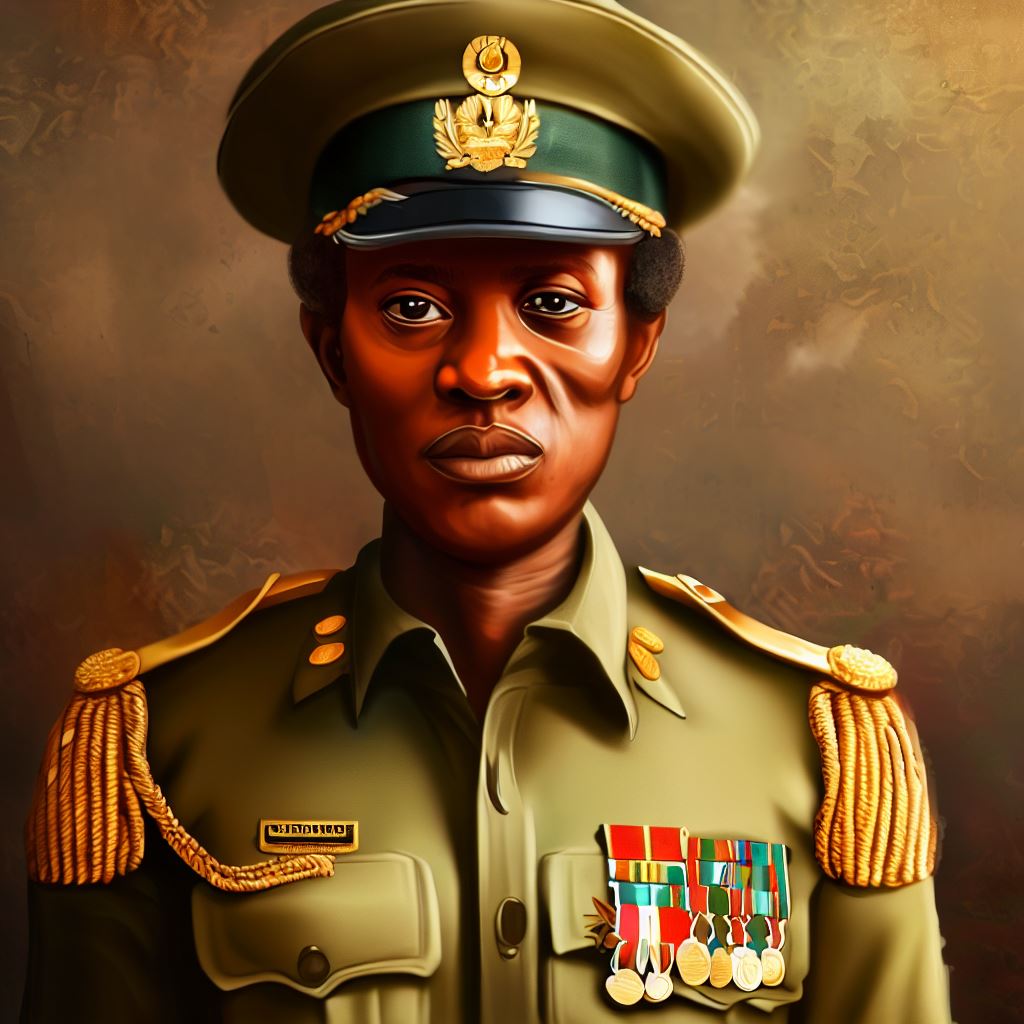
Post-Civil War Era
After the devastating Nigerian civil war, efforts were made to rebuild and restructure the Nigerian military.
Nigerian leaders played a significant role in modernizing the military and making it more efficient.
One prominent military officer during this period was General Olusegun Obasanjo.
A. Efforts to rebuild and restructure the Nigerian military after the civil war
- The Nigerian government recognized the need to rebuild the military after the civil war.
- Efforts were made to restore infrastructure, equipment, and manpower that were lost during the war.
- The focus was on training and equipping soldiers to ensure the country’s security.
- The military underwent reform to improve discipline, professionalism, and operational effectiveness.
- Efforts were made to strengthen the military’s intelligence capabilities to detect and counter threats.
B. Contributions of Nigerian leaders in modernizing the military
- Nigerian leaders recognized the importance of modernizing the military to meet the challenges of the time.
- They introduced reforms to improve the structure, organization, and training of the armed forces.
- Investment was made in developing indigenous defense industries to reduce dependence on foreign suppliers.
- Nigeria developed a robust defense industrial base, producing weapons and equipment locally.
- Leaders encouraged international partnerships to enhance the military’s capabilities through training and technology transfer.
C. Prominent military officers during this period, like General Olusegun Obasanjo
- General Olusegun Obasanjo played a crucial role in the post-civil war era as a military leader.
- He served as Nigeria’s military head of state from 1976 to 1979.
- Under Obasanjo’s leadership, the Nigerian military underwent significant reforms and restructuring.
- He focused on promoting professionalism, discipline, and accountability within the armed forces.
- Obasanjo also prioritized international collaborations, strengthening Nigeria’s defense capabilities.
In general, the post-civil war era in Nigerian military history witnessed efforts to rebuild and restructure the military, contributions of Nigerian leaders in modernizing the armed forces, and the prominence of military officers like General Olusegun Obasanjo.
Read: How to Join the Nigerian Army as an Officer
Nigerian Peacekeeping Missions
Nigerian peacekeeping missions have had a significant impact on the country’s reputation and international relations.
A. Participation in United Nations peacekeeping operations
Nigeria has actively participated in numerous United Nations peacekeeping operations around the world.
Nigeria has a long history of involvement in United Nations peacekeeping operations.
The Nigerian military has consistently contributed troops to various missions around the world, demonstrating the country’s commitment to global peace and security.
B. Notable Nigerian officers in peacekeeping missions, such as General Aguiyi Ironsi and General Martin Luther Agwai
The Nigerian military has produced prominent officers who have played crucial roles in various peacekeeping missions.
One notable Nigerian officer who participated in peacekeeping missions was General Aguiyi Ironsi. Ironsi served as the Force Commander for the United Nations Operation in the Congo (ONUC) in the early 1960s.
His leadership and military prowess were crucial in maintaining peace and stability during this challenging period.
Another distinguished Nigerian officer is General Martin Luther Agwai, who served as the Force Commander for the United Nations-African Union Mission in Darfur (UNAMID).
General Agwai played a vital role in overseeing the mission’s operations and ensuring the protection of civilians in the region.
C. Impact of these missions on Nigeria’s reputation and international relations
The participation of Nigerian officers in these peacekeeping missions has not only showcased their military expertise but has also enhanced Nigeria’s reputation on the international stage.
Their professionalism, dedication, and commitment to peace have earned Nigeria respect and admiration from the global community.
Moreover, these peacekeeping missions have positively impacted Nigeria’s international relations.
By actively participating in United Nations operations, Nigeria has strengthened its ties with other countries and gained the trust of the international community.
This has opened doors for diplomatic engagement, increased collaboration, and mutual support in addressing global challenges.
Additionally, Nigeria’s involvement in peacekeeping missions has helped promote regional stability and security.
By contributing troops and resources to peacekeeping efforts, Nigeria has played a vital role in preventing conflict escalation and maintaining peace in various regions.
This has not only protected vulnerable populations but has also contributed to the overall stability of neighboring countries.
Furthermore, peacekeeping missions have provided Nigerian soldiers with valuable training and experience.
Participating in these operations exposes them to different cultures, environments, and conflict scenarios, preparing them for future challenges.
This enhanced capability strengthens Nigeria’s national security and defense capabilities, ensuring the country’s readiness to respond effectively to any threats.
In review, Nigerian peacekeeping missions have been instrumental in promoting peace, security, and stability both regionally and internationally.
The notable officers who have served in these missions, such as General Aguiyi Ironsi and General Martin Luther Agwai, have showcased Nigeria’s military expertise and professionalism.
These missions have also positively impacted Nigeria’s international reputation and relations, strengthening its global standing and contributing to regional security.
Recent Military Leaders
In recent times, Nigeria has witnessed the introduction of democratic governance, which has significantly impacted the role of the military in the country.
Prominent military officers have played crucial roles in shaping Nigeria’s history. Two notable figures include General Muhammadu Buhari and General Tukur Buratai.
A. General Muhammadu Buhari
General Muhammadu Buhari, now retired, served as the military ruler of Nigeria from 1983 to 1985. His tenure was characterized by strict discipline and anti-corruption measures.
Buhari’s administration implemented several policies aimed at combating corruption and indiscipline, including the War Against Indiscipline (WAI) campaign.
Under his leadership, the Nigerian military carried out various operations to maintain law and order, such as Operation Maitatsine, aimed at quelling religious extremism.
B. General Tukur Buratai
General Tukur Buratai, the former Chief of Army Staff, played a crucial role in leading the Nigerian military in the fight against insurgency, particularly against Boko Haram.
During his tenure, Buratai worked tirelessly to improve the capabilities and professionalism of the Nigerian Army. He initiated several counterinsurgency operations, including Operation Lafiya Dole.
Under his leadership, the Nigerian Army recorded significant successes in the fight against Boko Haram, reclaiming territories previously under the control of the insurgents.
C. Current Challenges Faced by the Nigerian Military
Despite the efforts of capable military leaders, the Nigerian military continues to face numerous challenges.
One of the significant challenges is the ongoing battle against Boko Haram and other insurgent groups. These groups pose a threat to the nation’s security and stability.
Additionally, there are cases of internal corruption, inadequate funding, and limited resources, which hinder the military’s effectiveness in addressing security challenges.
D. Efforts to Overcome Challenges
The Nigerian military, under the leadership of President Muhammadu Buhari, has taken several steps to address these challenges.
There has been an increased budget allocation to the defense sector, with a focus on procurement of modern weapons and equipment to enhance operational capabilities.
The government has also prioritized the training and welfare of military personnel to boost their morale and commitment to service.
Furthermore, international collaborations and partnerships have been forged to build capacity and improve intelligence sharing, crucial for countering insurgencies.
The introduction of democratic governance in Nigeria has significantly shaped the role of the military.
Prominent military leaders like General Muhammadu Buhari and General Tukur Buratai have played crucial roles in shaping the nation’s history.
However, the Nigerian military still faces challenges, particularly in addressing insurgencies and internal corruption.
Efforts are being made to overcome these challenges through increased funding, capacity building, and international collaborations.
By tackling these challenges head-on, the Nigerian military can continue to evolve and adapt to the ever-changing security landscape, ensuring the nation’s safety and stability.
Conclusion
A. Importance of Great Officers and Leaders
Great officers and leaders in Nigerian military history are the backbone of its strength. Their vision, strategy, and courage have shaped the nation’s defense.
B. Significance of Their Contributions
- Enhancing Military Prowess: Their expertise bolstered Nigeria’s military capabilities.
- Strategic Leadership: They guided forces through critical missions.
- National Unity: Contributions fostered unity during challenging times.
- Global Recognition: Their feats garnered international respect.
- Inspiration: They continue to inspire future generations of military leaders.
In the end, these remarkable figures are the pillars upon which Nigeria’s military legacy stands, ensuring its security and sovereignty.

